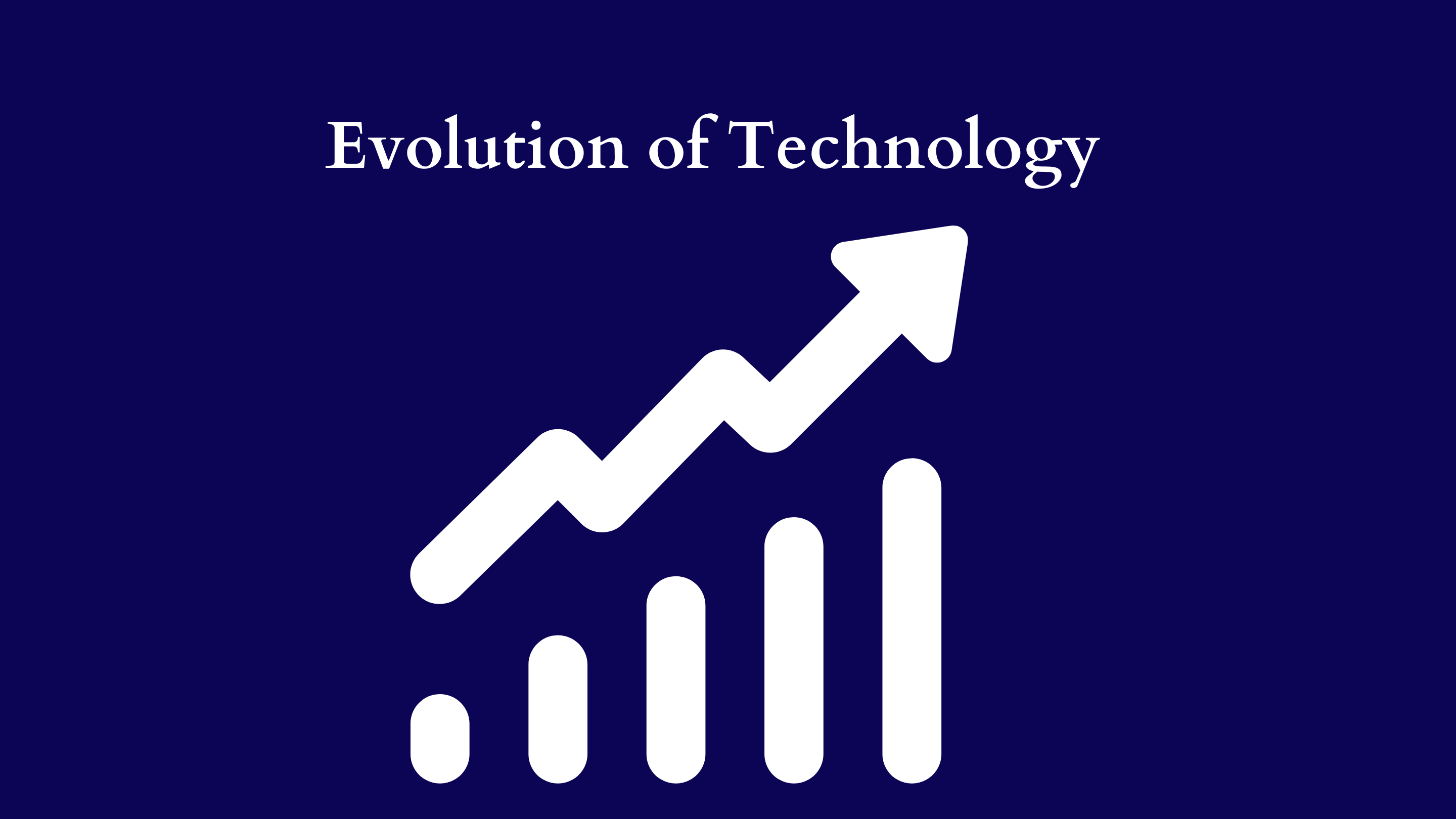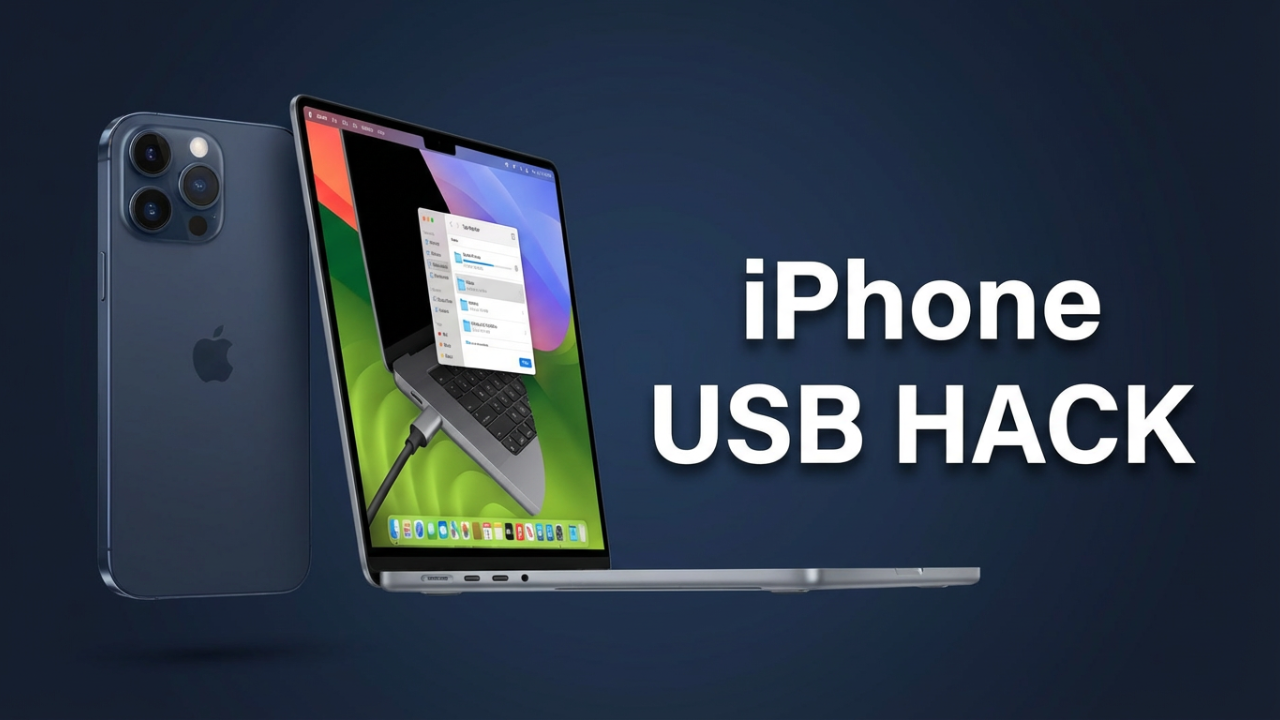The Evolution of Technology: A Journey Through Time
Evolution of technology is an essential part of human growth; thus, technology has always been an integral part of human civilization, serving as both a catalyst for progress and a reflection of our societal values. From the earliest tools created by our ancestors to the cutting-edge innovations of today, the evolution of technology is a fascinating narrative imbued with complexity, creativity, and transformative power.
In this blog post, we will explore the milestones in the evolution of technology, its impact on society, and the trajectory it seems to be taking as we advance into the future.

The Dawn of Technology: Prehistoric Innovations
The story of technology begins millions of years ago with our early ancestors, who developed rudimentary tools from stones, bones, and wood. These primitive innovations, such as hand axes and spears, were pivotal in enabling early humans to hunt, gather, and protect themselves from predators. This era marked the first significant technological revolution—the shift from a nomadic lifestyle to one focused on fixed settlements as agriculture emerged around 10,000 BCE.
The domestication of plants and animals heralded the Neolithic Revolution, whereby humans created new technologies such as pottery and weaving. These innovations laid the foundation for complex societies, facilitating trade, cultural exchanges, and the formation of cities. The inventions of irrigation systems and the plow were equally transformative, allowing for increased agricultural productivity and leading to population growth.
The Classical and Medieval Eras: Innovations Flourish
As civilizations evolved, so did their technologies. The classical era, particularly in regions such as Mesopotamia, Egypt, Greece, and Rome, saw remarkable advancements. The invention of writing systems, such as cuneiform and hieroglyphics, revolutionized communication. This era also heralded advancements in metallurgy, architecture, and mathematics, exemplified by the construction of monumental structures like the Pyramids of Giza and the Parthenon.
During the medieval period, technological innovations took a different path. The introduction of the mechanical clock in the 13th century marked significant progress in timekeeping, which would eventually play an essential role in naval exploration and trade. The invention of the printing press by Johannes Gutenberg in the 15th century democratized knowledge, allowing ideas to spread rapidly and igniting the flames of the Renaissance. This crucial technological leap not only transformed education and literacy but also paved the way for the Reformation, Enlightenment, and modern science.
The Industrial Revolution: A Paradigm Shift
The late 18th and early 19th centuries initiated the Industrial Revolution, a period characterized by unprecedented technological advancement and economic transformation. From steam engines to spinning jennies, these innovations significantly shifted how goods were produced and consumed. Factories emerged, leading to urbanization as laborers flocked to cities for work. This period also saw the development of key technologies such as the telephone and electric power, fundamentally changing communication and daily life.
The Industrial Revolution‘s impact was far-reaching, resulting in both progress and challenges. While it created wealth and improved standards of living for many, it also introduced significant social issues, including labor exploitation and environmental degradation. These contradictions laid the groundwork for the social movements that would come to define the late 19th and early 20th centuries, spurring developments in labor rights and environmental legislation.
The 20th Century: The Age of Information
With the advent of the 20th century, a new technological era emerged, marked by rapid advancements in communication, transportation, and computing. The invention of the airplane and the mass production of automobiles revolutionized travel. Meanwhile, household appliances transformed domestic life, making everyday tasks more efficient.
The mid-20th century witnessed the birth of the digital age with the development of computers. The invention of the transistor in the late 1940s marked a turning point, enabling the creation of smaller, more efficient computing devices. In 1969, ARPANET, the precursor to the modern internet, went online, changing the way information was shared and communicated across the globe.
Towards the end of the century, the launch of the World Wide Web in the early 1990s opened new frontiers in technology. E-commerce, social media, and mobile computing began to take shape, fundamentally altering how we interact with information and each other.
The 21st Century: A Technological Renaissance
As we transitioned into the 21st century, technology continued to evolve at an exponential pace. The proliferation of smartphones revolutionized connectivity, placing powerful computing devices in the hands of billions. This era of immediacy transformed industries, from communication and entertainment to healthcare and education, fostering an interconnected global society.
Simultaneously, the emergence of artificial intelligence (AI), big data, and the Internet of Things (IoT) has sparked a technological renaissance. AI has begun to reshape industries by automating processes, enhancing decision-making, and enabling predictive analytics. Meanwhile, IoT has connected everyday objects to the internet, creating smart environments and improving efficiency across various domains, from agriculture to urban planning.
However, as we embrace these advancements, we also grapple with their ethical implications. Questions of privacy, security, job displacement due to automation, and the digital divide have become pressing issues that warrant thoughtful discourse and innovative solutions.
Looking Ahead: The Future of Technology
As we continue to navigate the complexities of the 21st century, the future of technology remains both promising and uncertain. Emerging technologies such as quantum computing hold the potential to unlock new realms of problem-solving, while advancements in biotechnology may redefine healthcare and agriculture.
Moreover, the focus on sustainability is prompting innovations aimed at addressing climate change and resource depletion. Renewable energy technologies, electric vehicles, and smart grids are being developed to create a greener future, highlighting technology’s capacity to solve societal challenges.
In conclusion, the evolution of technology is a rich tapestry woven from the threads of human ingenuity, ambition, and sometimes, conflict. As we reflect on this journey from primitive tools to sophisticated digital systems, we must embrace the responsibility that comes with technological progress. The choices we make today will shape the society of tomorrow, prompting us to innovate mindfully and ethically. By doing so, we can harness the full potential of technology to foster a better future for all.
Shop Now






